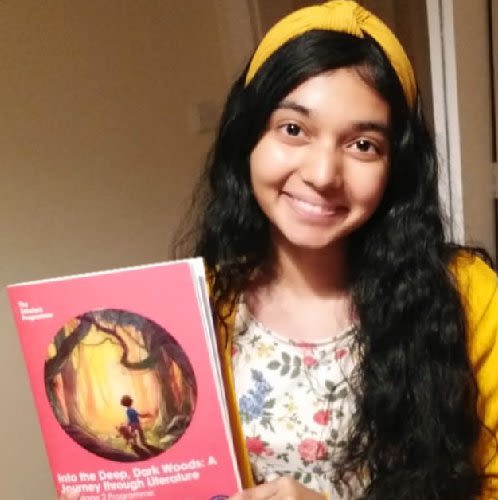

Faculty student’s widening participation work wins award for socially impactful research
PhD candidate Nomisha Kurian has become the first student from the Faculty of Education to receive the Cambridge Society for the Application of Research (CSAR) award for “outstanding research with clear application”. CSAR is a charity which encourages research that tackles real-world problems. Its annual awards scheme helps PhD students who are already putting their research to practical use. Over 260 applications were made this year and only 12 winners selected. The majority of CSAR award-winners typically work in STEM disciplines, with hundreds of students applying each year.

Nomisha Kurian
Nomisha Kurian
Nomisha is in the third year of her PhD. Her research asks how we can build caring and inclusive school environments that help marginalised young people feel safe and supported. She works with disadvantaged learners across both India and the UK.
The award recognises Nomisha’s work bridging the gap between research and practice. Both through the Cambridge Admissions Office and external charities, she has used her expertise to develop and deliver initiatives that introduce disadvantaged UK students to university-style education and encourage them to consider pursuing it.
The United Kingdom suffers from a widely-acknowledged opportunity gap in this regard. Data published by UCAS in 2019 showed that only 1 in 50 of the least advantaged fifth of pupils in England progress from school to higher education, compared with 1 in 4 of the most advantaged. In Scotland, just 7% of students from the most deprived areas progress, compared with 26% from the least deprived. Similar disparities exist in both Northern Ireland and Wales.
“There is usually a long pipeline when it comes to applying research. But I wanted to connect my research on tackling inequality and discrimination, and building cultures of inclusion, peace, and wellbeing, with the Widening Participation sector,” Nomisha said. “Most young people I work with would be the first people in their family to go to university. They have expressed uncertainty and anxiety about whether they belong in that environment.”
In response, she seeks to build the strong teacher-child relationships that she writes about in her PhD. “Research shows that even one supportive adult can alter the trajectory of a child’s life,” she said.
Nomisha has taught and mentored over 200 pupils over her last three years at the Faculty. She has designed and taught courses for 9 to 15-year-olds in London, Wales, Hertfordshire and Cambridge, through the charity, The Brilliant Club, and mentored low-income state school pupils across the UK as a Widening Participation Ambassador for the Cambridge Admissions Office.
"Part of the challenge is to prepare students for the very different discussions you would have in, for example, a Cambridge interview compared with a school classroom"
These initiatives aim to develop young people’s critical thinking skills, written and verbal communication, confidence, and awareness of what university-level teaching involves.
For example, supported by the Brilliant Club, Nomisha has drawn directly on her research to design 100-page course handbooks on young people’s wellbeing. She has also taught English Literature courses about the role of nature in storytelling and History courses about the Windrush generation, exposing students to wide-ranging disciplines to spark their curiosity.
“Part of the challenge is to prepare students for the very different discussions you would have in, for example, a Cambridge interview compared with a school classroom,” Nomisha said. “It’s quite normal to be asked a question where the admissions tutor doesn’t expect you to give a perfect answer; what they’re interested in is how you approach the problem and articulate your thinking. Many of these young people tell me they have never had support to navigate that type of discursive environment. Addressing this gap is key if we want them to have fairer access.”
Students have been hugely enthusiastic. One nine-year-old girl who had been disengaged from lessons wrote and printed her own novel by the end of Nomisha’s course. Teachers reported that she was “racing to English now and has finally started raising her hand in class”. Her reading, spelling and grammar scores improved and she began to publish her stories in community newsletters. She told Nomisha, “I want to go to university so that I can write more stories and share my ideas.”
After learning that she is the first Education student to receive the award, Nomisha hopes more PhD students will apply. She said: “I am inspired by how much wonderfully practical research the Faculty undertakes that has real benefits for people’s lives. My supervisor, Dr. Hilary Cremin, undertakes tireless and poignant work to build peaceful schools. My knowledge would be incomplete without the pioneering wellbeing research of my advisor, Dr. Ros McLellan. I have been inspired to think more deeply about inclusion by working with the incredibly thoughtful Dr. Nidhi Singal.”
Nomisha’s favourite memory involves an 11-year-old telling her at the end of class: “My words are growing and my voice is louder now. I want to go to university so that my words can keep singing.”